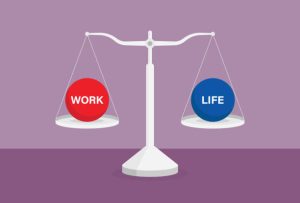
Casual employment rights what are they?
Many industries employ casual workers to fill a need, while also protecting themselves from a long-term commitment. Casual employees have different rights to those employed on a full-time or part-time basis. There is no commitment from the employer on how long they need to employ the casual staff. Or how many hours they need to give them. Casual employees also do not have to accept any work offered to them. Accordingly under the Fair Work award system are paid a higher wage for this flexibility in the arrangement. There are hundreds of thousands of employees employed on Long term casual employment agreements or arrangements. What are their rights?
There are many reasons why employers employ casual staff. Namely, they act as a good backup for the regular staff, such as during busy periods – think Christmas time in retail – or if there are staff shortages. Casual staff is often the backbone of seasonal periods or weekend shifts as they can fill the need when regular staff isn’t available, or they are only required for a short time period.
Not all casuals are created/treated equally
The difficulty is not all casuals or employees are created/treated equally. An example of this is workers’ compensation. Statistics indicated injuries are higher amongst casual employees because they do not receive the same induction or OH&S training as permanent employees. True casual employment is a daily higher arrangement, so many employers will give you no notice, or minimal notice when they don’t need you. Yet they want up to three months’ notice of you going on holiday. Or get aggrieved when you take time off because of health issues.
Some employees get treated more harshly, and subjected to more harassment, bullying, and toxic treatment because the employer knows the employee cannot lodge an unfair dismissal claim. (they may be able to lodge a general protections claim for adverse action, look at separate articles regarding this). These are just some examples let’s work through the issue together.
Firstly let’s look at what’s a casual employee
What is a casual employee?
A person is a casual employee if they accept an offer for a job from an employer knowing that there is no firm advance commitment to ongoing work with an agreed pattern of work.
For example, if an employee is employed as casual, their roster changes each week to suit their employer’s needs, and they can refuse or swap shifts, that could mean they are casual.
Specifically, under the Fair Work Act, a person is a casual employee if:
they are offered a job
the offer does not include a firm advance commitment that the work will continue indefinitely with an agreed pattern of work
they accept the offer knowing that there is no firm advance commitment and become an employee.
https://www.fairwork.gov.au/starting-employment/types-of-employees/casual-employees
No firm advance commitment
There are only 4 factors that determine whether an employer’s offer doesn’t include a firm advance commitment. They are:
whether the employer can choose to offer the employee work and it’s the employee’s choice to work or not
whether the employee will be offered work when the business needs them to work
if the employment is described as casual
if the employee is paid a casual loading (a higher pay rate for being a casual employee), or a specific pay rate for casual employees.
https://www.fairwork.gov.au/starting-employment/types-of-employees/casual-employees
Casual staff are paid higher
Casual staff is paid a higher wage than other staff to make up for the fact that they are not entitled to the usual entitlements as outlined in the National Employment Standards (NES). Therefore, casual staff does not get paid annual leave, paid sick leave, or notice of termination. Usually, this additional payment is about 25 percent).
Rights that casual employees are entitled to include casual loading (the higher pay mentioned above). Two days of unpaid carer’s leave; two days of unpaid compassionate leave; unlimited community service leave; and five days of unpaid family violence leave within a twelve-month period.
Casual employees are also entitled to a fair and safe working environment, as all employees are. These include the employer complying with occupational health and safety laws; workers’ compensation laws; equal opportunity laws and the Fair Work Act 2009 (Cth) which includes the rights to make unfair dismissal claims and general protection claims.

What’s rights do casual employees have?
While this all sounds great, what about the long-term casual employees? What rights do they have?
If you have been working continuously as a casual employee for over twelve months, then you are entitled to additional rights. During this twelve-month period you need to have been a part of an ongoing roster and regularly employed with the company. This means that if you only work a random shift once a month, you are not a long-term casual employee.
The additional rights that long-term casual employees receive are flexible working arrangements. Further unpaid parental leave of up to twelve months. Regardless of how long you are there, you will not receive paid leave or notice of termination. After twelve months of work, it is often the case that you may wish to have, or be offered full-time or part-time work. This transition can be agreed to at any time if wanted by both the employee and the employer. But be mindful that an employer does not have to employ you full-time or part-time unless specified in your contract.
What are flexible working arrangements?
Long-term casual employees have the right to a flexible work arrangement if they have been at their workplace for over twelve months. There are a few types of flexible work arrangements. First, there is permanent part-time work. Gradual return to work after parental leave. Flexible start and finish times, flexible rostering (including split shifts), and job sharing. Working from home or remotely, purchased leave (which is where employees adjust their salary so that it can cover extra weeks to create a form of ‘paid leave’), or compressed hours. Working additional daily hours in order to have a shorter working week. Allowing flexible working arrangements have been proven to increase productivity in employees and increase their satisfaction in the workplace.
Should you put in a request for any of these flexible working arrangements it must be in writing, explain what arrangement you are asking for, and explain the reason why you have requested this change. As a long-term casual employee, if you request a flexible working arrangement you should receive a response from your employer within 21 days. Additionally, your request should only be refused on a reasonable basis.
A reasonable basis for your employer to refuse your flexible work arrangement can include: if your requested arrangements are too expensive. Other employees’ work arrangements cannot accommodate your request; it’s not possible to change other employees’ work arrangements. Or hire new employees to accommodate your request; or if the request would reduce productivity or the ability for the business to carry on its normal activities.

What dismissal notice am I entitled to as a long-term casual employee?
While long-term casual employees do not require notice of termination, in some circumstances you can still make an unfair dismissal claim with the Fair Work Commission if you are dismissed unfairly. This right is restricted compared to full-time and part-time employees; however, it is still possible.
As per the Fair work unfair dismissal case of Angele Chandler v Bed Bath N’ Table Pty Ltd [2020] FWC 306 (Bed Bath N Table Case) a casual employee can claim unfair dismissal if they have worked at the company for at least 6 months (if it is a large company) or 12 months (if it is a small company), if they have worked on a regular and systematic basis and they had a reasonable expectation of continuing employment by the employer on a regular and systematic basis. These last two requirements are outlined in s384 of the Fair Work Act 2009 (Cth).
In the Bed Bath N’ Table Case, it was found that there did not have to be an identifiable pattern in the hours given to the employee. It is engagement that is required to be regular and systematic, not the hours worked within this engagement (Yaraka Holdings Pty Ltd v Giljevic). The days, times, or regularity of these hours do not need to be set out in the employee’s contract to count as regular and systematic.
Regular employment is now defined as frequent employment
Regular employment is now defined as frequent employment. Systematic employment is defined in two parts. The first, in the Bed Bath N’ Table case, was that the casual employee’s employment contract established a legal allowance for the allocation of work to her in her position. Additionally, her roster was posted a month in advance and clearly stated her allocated shifts. This means that so long as your contract permits you to work hours within your position, and you generally have advanced notice of your working hours, your employment would be considered systematic.
This case was significant in providing more rights to casual employees. Especially those that have been working with a company on a long-term basis. So, while all casual employees have some rights, long-term casual employees have more rights. These include being able to request flexible work arrangements, request to be employed as a full-time or part-time employee, and a higher chance of succeeding in an unfair dismissal claim.

Conclusion to: Long-term casual employment rights
I hope the article on long-term casual employment rights has been helpful to you. We are A Whole New Approach. We are the leading national workplace advisors and representatives. AWNA are at the forefront of commentary, research, and change, anything to do with the workplace for 25 plus years.
AWNA are not lawyers, this is all we do. Read our blogs, well researched, a diversified list of subjects. It is not a list of “info commercials” to get a better ranking for Google. We assist in all Fair Work Australia and Fair Work Commission matters. Including unfair dismissal issues, serious misconduct, probation issues, forced to resign. Probation period concerns, Workers’ rights, employment rights, and toxic workplaces. Facing the sack in any form, call us now.
Articles similar to Long term casual employement rights
Are you dismissed when you are not given shifts






